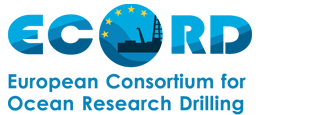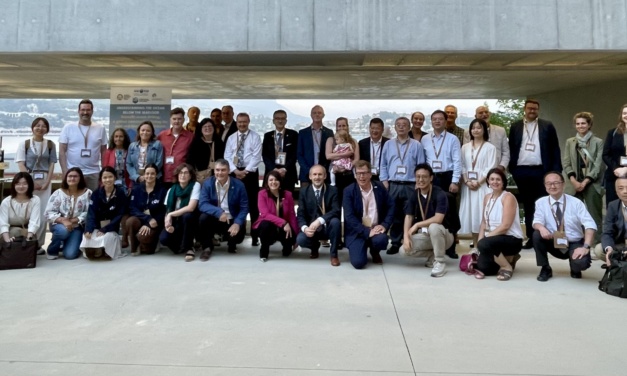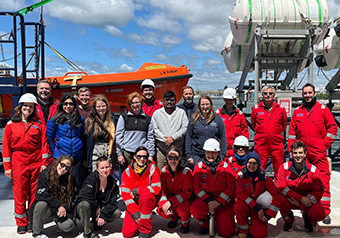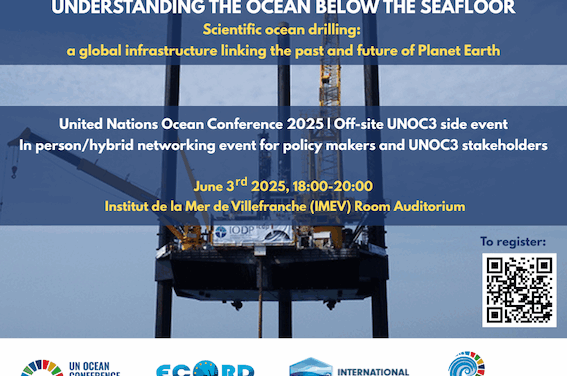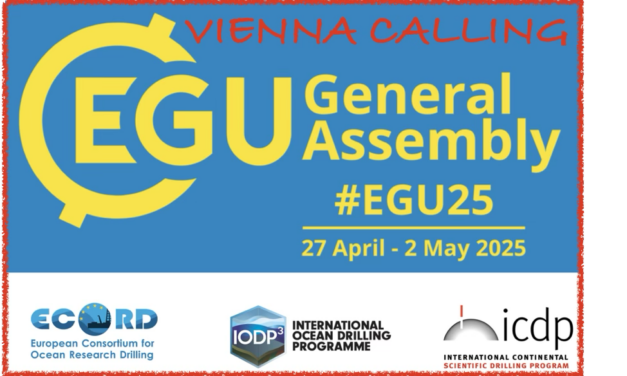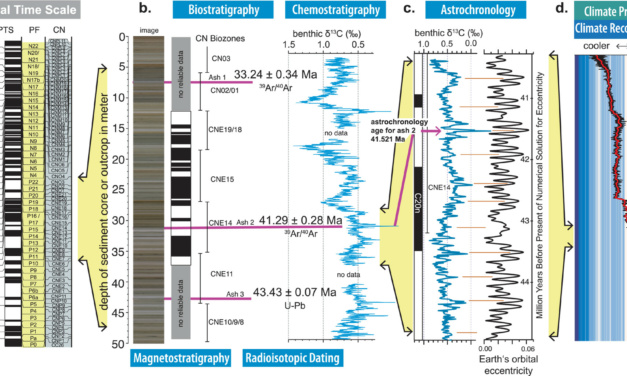Research project investigates freshened water under the ocean floor
Start of an international expedition off the coast of New England
Freshwater under the Ocean – in the 1960’s scientists were quite surprised when they looked at their data: it clearly showed that there was fresh or freshened water under the ocean floor. How did it get there? How long has it been there? Scientists have been trying to find answers to these questions since their intriguing discovery. Starting in May, an international team of scientists has embarked on an expedition to take a closer look at, and take samples, of this freshened water stored beneath the ocean floor. Prof Karen Johannesson of University of Massachusetts Boston and Prof Brandon Dugan of Colorado School of Mines are the Co-Chief Scientists of this international expedition. Samples will be collected using the Liftboat Robert, which departed from the port of Bridgeport on May 19.
Seventy percent of the Earth’s surface is covered with water, but water also flows beneath its surface. Most coastal communities rely on traditional onshore aquifers for freshwater, however, in many locations worldwide onshore aquifers may have an offshore component where freshened water exists under the ocean floor. Even though the existence of these waters has been known for decades they remain virtually unexplored. This will change through the ground-breaking research to be completed during this expedition, which is a collaboration between the International Ocean Drilling Programme (IODP³) and the US National Science Foundation (NSF). For the first time scientists on IODP³-NSF Expedition 501 “New England Shelf Hydrogeology” will take water and sediment samples from beneath the ocean on the New England Shelf with the intention of understanding this offshore aquifer system.
Aim: Validate hypotheses about water origin
The key priority for researchers is to gain more knowledge about the origin of freshened groundwater in offshore aquifers so that they can confirm or dismiss the existing hypotheses. For example, current hypotheses are that the water could have charged the aquifers at a time when sea-level was 100 meters lower than it is today, or perhaps it was generated under an ice sheet or pro-glacial lake during a glacial period such as existed approximately 450,000 and approximately 20,000 years ago.
Hydrogeologist Brandon Dugan: “We have anecdotal evidence of offshore freshened groundwater from samples and marine geophysical surveys. We have used this evidence to develop hypotheses on timing and mechanism of emplacement. It is exciting to use established scientific ocean drilling approaches with modern data analyses to provide direct tests of our hypotheses. Overall, this work offshore New England will help us better understand offshore freshened groundwater around the world.”
Environmental Geochemist Karen Johannesson: “To date, we know very little about the dynamics of these shoreline-crossing groundwater systems and the age of the water in these systems, and even less about their influence on cycling of nutrients and trace elements and their isotopes.”
The expedition begins in May. A special platform, the liftboat ‘L/B Robert’ equipped with a small drilling rig, will be used to access the sediments below the ocean floor at up to three locations on the New England Shelf offshore from the coast of Massachusetts, USA. These locations are in relatively shallow water and were identified through numerous preliminary geoscientific investigations. Sediment cores and water samples will be taken down to a maximum depth of 550 meters below the ocean floor and will be examined by researchers from various disciplines drawn from across the international scientific community.
High societal relevance: to better understand aquifers around the world
The team believes that the data acquired will help to better understand the processes that lead to the emplacement of freshwater lenses in offshore coastal plain sediments and why this freshened water is present. The findings will be relevant for the hydrogeology of the New England Shelf and for multiple similar settings elsewhere around the world.
The research is essential for a better understanding of the biogeochemical and elemental cycles in the continental shelf environment and will support a focus on the protection and sustainable management of offshore freshwater systems.
The expedition aims to find answers to the following questions:
How old is the freshened groundwater, and when was it emplaced?
How much freshwater is there?
How does the freshwater interact with seawater?
What microbial communities are involved?
What sources of carbon do microbes use?
What is the general cycling of nutrients and energy in the shelf sediments?
How might these freshwaters influence nutrient, carbon, and metal concentrations in seawater?
International approach
41 science team members from 13 nations (Australia, China, France, Germany, India, Italy, Japan, Netherlands, Portugal, Sweden, Switzerland, United Kingdom, USA) take part in the expedition that consists of two phases: offshore and onshore operations. Offshore Operations will take place between May and early August 2025. The entire science team will meet for the onshore work at the Bremen Core Repository, at MARUM – Center for Marine Environmental Sciences at the University of Bremen (Germany) in January 2026 to split, sample, and analyze the sediment cores and interpret the data collected The cores will be archived and made accessible for further scientific research for the scientific community after a one year-moratorium period following an onshore operations phase of the expedition. All expedition data will be open access and resulting outcomes published.
The expedition is conducted by the European Consortium for Ocean Research Drilling (ECORD) as part of the International Ocean Drilling Programme (IODP³), funded by IODP³ and the National Science Foundation (NSF). IODP³ is a publicly-funded international marine research program supported by 16 countries, which explores Earth’s history and dynamics recorded in seafloor sediments and rocks, and monitors sub-seafloor environments. Through multiple platforms – a feature unique to IODP³ – scientists sample the deep biosphere and sub-seafloor ocean, environmental change, processes and effects, and solid Earth cycles and dynamics.
More Information:
About the expedition – https://www.ecord.org/expedition501/
Scientific Prospectus – https://iodp3.org/documents/expedition-501-scientific-prospectus/
About the international research collaboration – https://iodp3.org/about/
About the European part of the program – https://www.ecord.org/ and Mission-Specific Platform expeditions – https://www.ecord.org/expeditions/msp/concept/
Frequently Asked Questions – https://expedition501.wordpress.com/2025/02/19/faq1/Offshore
Caption:
Science and ECORD Science Operator Team and of the first rotation onboard liftboat L/B Robert. It will be home for the science team until August. Photo: Everest@ECORD_IODP3_NSF
Contact:
IODP³-NSF Expedition 501 Co-Chief Scientists:
Professor Brandon Dugan
Colorado School of Mines, Golden, USA
Email: dugan@mines.edu
Professor Karen Johannesson
University of Massachusetts, Boston, USA
Email: Karen.Johannesson@umb.edu
IODP³-NSF Expedition 501 Operations:
Dave McInroy
ECORD Science Operator
British Geological Survey (UK)
Email: dbm@bgs.ac.uk
ECORD Outreach:
Ulrike Prange
ECORD Science Operator – Outreach and Media Relations
MARUM – Center for Marine Environmental Sciences
University of Bremen (Germany)
Email: uprange@marum.de
Phone: +49 421 218-65540
Follow the expedition via Bluesky (@ecord.bsky.social ), X/Twitter (@ECORD_IODP), Instagram (@ECORD_IODP), Youtube (ECORD IODP) or Mastodon (@ECORD@mastodon.world), or the offshore expedition logbook (https://expedition501.wordpress.com).
